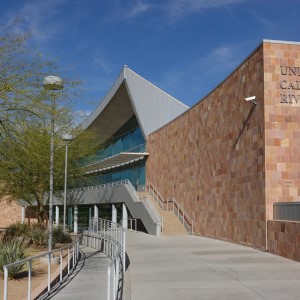
Southern California’s Inland Empire, located east of Los Angeles, is an urban region with a diverse population and a growing economy; however, the area faces challenges in education and workforce development, especially in STEM fields. In fact, although the Inland Empire region is more populous than half of U.S. states, many first-generation, low-income, and Hispanic students living there are not fully aware of the research pathways or various research opportunities within the universities.
For instance, data science is a rising interdisciplinary field that uses scientific methods to extract insights and knowledge from various types of data generated by scientific experiments, digital processes, sensors, social media, mobile devices, and more. Nowadays, data scientist positions are in high demand from companies, governments, and local agencies. Raising awareness of these opportunities would go a long way in advancing STEM visibility among those who live in the Inland Empire.
With that in mind, the University of California Riverside, with the support of an IEEE CS Diversity and Inclusion Fund grant from the IEEE Foundation, hosted the Inland Empire Data Science Workshop 18-19 November, 2023. The workshop’s goal was to promote the data science research culture for first-generation, women, and underrepresented minority students in the Inland Empire. Designed to encourage innovation, spur education, and ensure equitable opportunities, the workshop provided introductory research experiences and shared research pathways to the undergraduates from the Inland Empire, helping them to consider data science or computing graduate programs or careers.
Targeted at undergraduate students pursuing computing degrees, the event shared information about data science education and research. More than 70 students from computing-related majors—computer science, computer engineering, electrical engineering, statistics, data analysis, and data science—as well as non-computer-related fields, such as civil engineering, biochemistry, and business, all joined together to learn more about education and job opportunities in the field. Participants joined the event from the University of California Riverside as well and four additional California State Universities and community colleges.
Topics covered included:
- Basics of data science, including Python programming and machine learning models
- Potential data scientist careers in industry and academia
- Educational opportunities for data scientists
- Research projects for both undergraduate and graduate students
- How to get into graduate programs in data science
“The participants seemed very enthusiastic and viewed the data scientist instructors at the event as role models,” said Jia Chen, Assistant Professor at the University of California Riverside Department of Electrical and Computer Engineering and workshop lead. “Since the workshop, some have already graduated and were admitted to graduate schools for computing-related majors. Others have reached out to the mentors and speakers at the sessions, seeking advice about research and future careers.”
In fact, Chen recounts that one undergraduate participant contacted one of the speakers at the workshop after the event, and ultimately, that outreach led to the student becoming the speaker’s undergraduate researcher. The two since have been collaborating on a research project.
In addition, two student participants were inspired by the program and decided to use its foundation to influence more students to consider data science research: They are currently collaborating with the workshop leads to co-run a week-long High School Data Science Summer Camp.
Chen and the project team plan to build on the success of this event: Future enhancements include expanding student mentoring components with activities such as a graduate student panel and student poster session, along with additional sessions with industry speakers, panelists, and project mentors.
“Overall, the future program will be more impactful with more collaborative efforts nationwide to attract a larger group of students,” added Chen.